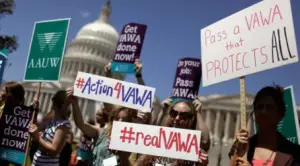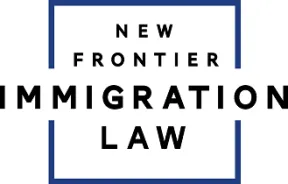
Victims of physical battery or cruelty may be able to petition for and obtain lawful permanent resident status pursuant to the Violence Against Women Act (VAWA). The VAWA provides an avenue for victims to become lawful permanent residents, as long as petitioners meet certain eligibility requirements and meet other standards. In order to petition under the VAWA, certain circumstances must be present. In this post, we will provide a basic overview of these circumstances, and then discuss the eligibility requirements and other relevant considerations.
- Basic Overview
To become a petitioner for a Green Card pursuant to the VAWA, the perpetrator of the violence must fall into one of the following categories: the perpetrator must either be a current or former spouse who is a U.S. citizen, a parent who is a U.S. citizen, a current or former spouse who is a lawful permanent resident, a parent who is a lawful permanent resident, or a son or daughter who is a U.S. citizen. We can see the logic underlying these petition requirements fairly easily. Women without residency who have been victimized by U.S. citizens or U.S. lawful permanent residents are given an avenue to become permanent residents. The hope is that these women will be better able to pursue justice if they change their residency status and stay in the U.S.
For a free case review , call
To petition under the VAWA in this manner, a victim needs to fill out and submit the Form I-360, “Petition for Amerasian, Widow(er), or Special Immigrant.” Petitioners who are pursuing permanent resident status under the VAWA are recognized specifically as a potentially eligible group. Victims may self-petition without notifying the perpetrator.
- Eligibility Requirements for Status Adjustment
In addition to filling out the Form I-360, petitioners also need to meet a number of other eligibility requirements. Petitioners need to fill out and submit a Form I-485, which is the standard form required for upgrading to permanent residency status. Furthermore, you need to be physically present in the U.S. when you file this form, and you must be currently eligible to receive a visa. Moreover, petitioners must not be inadmissible.
- Other Considerations: Bars & Inadmissibility
Our immigration lawyers
Not only do petitioners need to meet the various eligibility requirements which apply, they must also not possess certain disqualifying things. Normally, Green Card petitioners cannot be “barred” from adjusting their status in order to qualify. Persons petitioning pursuant to the VAWA, however, are actually exempt from all the bars to adjustment of status. Although this is the case, petitioners under the VAWA do need to make sure that they are not “inadmissible,” because the admissibility requirements do still apply to VAWA petitioners. The various grounds of inadmissibility are spelled out in INA 212(a). All the grounds for inadmissibility apply to VAWA petitioners except for two. The most common grounds of inadmissibility which are seen are wrongful entry into the country and acts of violation against U.S. immigration law.
Complete a
Free Case Evaluation
Form now
Understanding all the grounds of inadmissibility is not an easy task, and petitioners are encouraged to consult with a qualified immigration attorney for assistance on this matter. Having an experienced attorney to work with you during the entire petition process is also advised given the complexity.
- Contact New Frontier Immigration Law for More Information
This is merely a brief overview of the process for petitioning for permanent resident status pursuant to the VAWA. If you’d like additional information, or need professional assistance, please reach out to the New Frontier Immigration Law firm by calling 623-742-5400.




